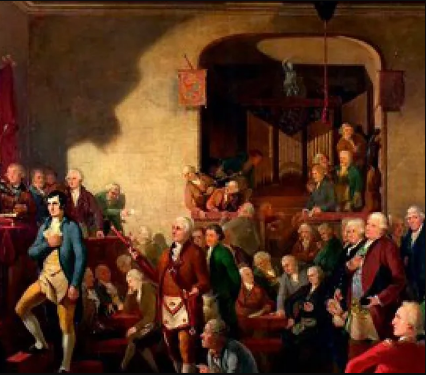
Born: March 31, 1732 – Died: May 31, 1809
Joseph Haydn was an Austrian composer, widely considered one of the greatest composers in Western music history, was born in a small village near Vienna.
His Parents recognized their son’s talent for music early on and took him to Vienna to work as a choirboy at St. Stephen’s Cathedral. There, he received formal musical education and training, which laid the foundation for his future career as a composer.
In 1750, Haydn left the choir and began working as a freelance musician. He struggled financially, but his fortunes changed when he worked as court musician for the wealthy Esterházy family in 1761. He served for nearly 30 years, during that time he composed a great amount of music, including symphonies, operas, chamber music, and choral works.
In 1790, after the death of Prince Nikolaus Esterházy, Haydn was free to leave his post and traveled to London for two successful concert tours (1791-92 and 1794-95). These trips brought him international fame and recognition. When he returned to Vienna in 1802, he continued composing until his death in 1809 at the age of 77.
Haydn was initiated into Freemasonry on November 29, 1784, at the age of 52, in the Lodge of St. John in Vienna, Austria. This lodge was one of the most prominent and influential masonic lodges during the Enlightenment period. Other well-known members included Mozart and Ignaz Pleyel. Haydn’s association with Freemasonry lasted for more than two decades.
The connection between Haydn and Freemasonry is evident in some of his compositions. For instance, his oratorio “The Creation” (Die Schöpfung) reflects masonic ideals such as Brotherhood, Equality, and Liberty. Additionally, his “Seven Last Words of Christ” contains elements of freemasonic rituals and symbolism.
Haydn’s masonic affiliation also influenced his social life. He composed music for various masonic events and gatherings. He was an active participant in masonic activities and held several positions within the Lodge of St. John, including that of a Worshipful Master from 1787 to 1788. Haydn’s association with Freemasonry played a crucial role in shaping his musical career and legacy.

